Crimes Against Humanity (194 found)
“Prison Conditions in Burma and The Potential for Prison Reform” Report
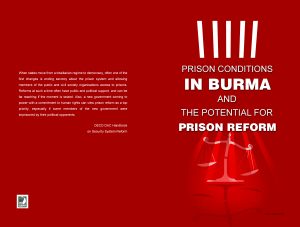 As Burma emerges from decades of authoritarian rule and international isolation, the issue of human rights and human rights abuses has been of large concern to many actors involved. Holding those accountable for crimes committed in the past has been at the forefront for many observers […]
As Burma emerges from decades of authoritarian rule and international isolation, the issue of human rights and human rights abuses has been of large concern to many actors involved. Holding those accountable for crimes committed in the past has been at the forefront for many observers […]
Anti Muslim violence in Thuyethamain village on 23rd June 2016
A group of 11 people from Thuyethamain village sent a complaint letter to the Township Development Committee on 6 June, stating that they suspected that a warehouse under construction in the village was actually projected to be used as an Islamic school […]
• • •Burma Army must be held accountable for extrajudicial killing of seven villagers in Mong Yaw
On June 25, 2016 about 100 Burmese troops from Light Infantry Battalion (LIB) 362 arrived at the village of Mong Yang (about 10 kms west of Mong Yaw) from the Namjalarp-Loi Tao area (in the north). From Mong Yang, the troops walked in a line along the road east towards Mong Yaw […]
• • •Myanmar CSO Shadow Report on Thematic Issues: Violence against Women
This CEDAW Shadow Report is written by CEDAW Action Myanmar (CAM). This working group is established in 2012 and consists of 15 local organizations. The report consists of perceptions of 309 (with 226 women and 83 men) respondents who participated in a survey; along with news from print and social media […]
• • •2016 Trafficking in Persons Report – BURMA: Tier 3
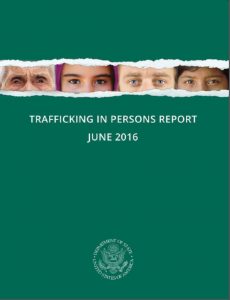 Burma is a source country for men, women, and children subjected to forced labor and for women and children subjected to sex trafficking, both in Burma and abroad. Some Burmese men, women, and children who migrate for work abroad—particularly to Thailand and China, as well as other countries in Asia, the Middle East, and the United States—are subjected to forced labor or sex trafficking […]
Burma is a source country for men, women, and children subjected to forced labor and for women and children subjected to sex trafficking, both in Burma and abroad. Some Burmese men, women, and children who migrate for work abroad—particularly to Thailand and China, as well as other countries in Asia, the Middle East, and the United States—are subjected to forced labor or sex trafficking […]
New Report: Military Confiscation of Burmese Ancestral Land in Karenni State
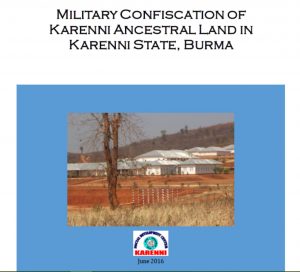 This report is based on direct testimony provided through interviews with 40 villagers between February 16 and March 28, 2015 […]
This report is based on direct testimony provided through interviews with 40 villagers between February 16 and March 28, 2015 […]
Human Rights Watch: “They Can Arrest You at Any Time” The Criminalization of Peaceful Expression in Burma
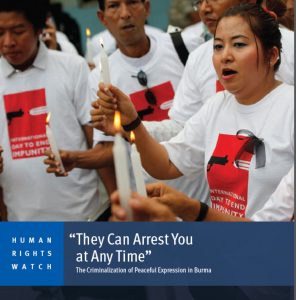 The past five years have been a time of liberalization and change in Burma. The abolition of prior censorship and a loosening of licensing requirements has led to a vibrant press, and the shift from formal military rule has emboldened civil society […]
The past five years have been a time of liberalization and change in Burma. The abolition of prior censorship and a loosening of licensing requirements has led to a vibrant press, and the shift from formal military rule has emboldened civil society […]
TRAINED TO TORTURE: Systematic war crimes by the Burma Army in Ta’ang areas of northern Shan State (March 2011 – March 2016)
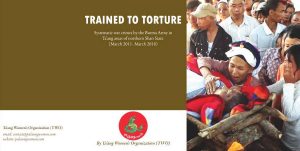 TWO documentation of human rights violations in Ta’ang areas of northern Shan State from March 2011 to March 2016 provides evidence that the Burma Army is committing war crimes, on a widespread, systematic basis – in particular torture, shelling of civilian targets, and forcing civilians to be porters and human shields […]
TWO documentation of human rights violations in Ta’ang areas of northern Shan State from March 2011 to March 2016 provides evidence that the Burma Army is committing war crimes, on a widespread, systematic basis – in particular torture, shelling of civilian targets, and forcing civilians to be porters and human shields […]
Briefing Paper: The legacy of mass torture and the challenge for reform in Myanmar
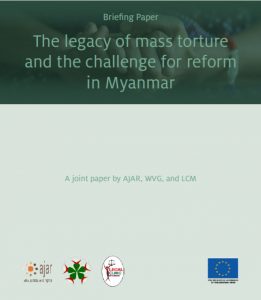 Torture has a long history in Myanmar and has been widely employed by the military regimes in power after 1962 […]
Torture has a long history in Myanmar and has been widely employed by the military regimes in power after 1962 […]
Report of the United Nations High Commissioner for Human Rights: Situation of human rights of Rohingya Muslims and other minorities in Myanmar
The present report, submitted pursuant to Human Rights Council resolution 29/21, examines the situation of human rights of Rohingya Muslims and other minorities in Myanmar […]
• • •
 All posts
All posts